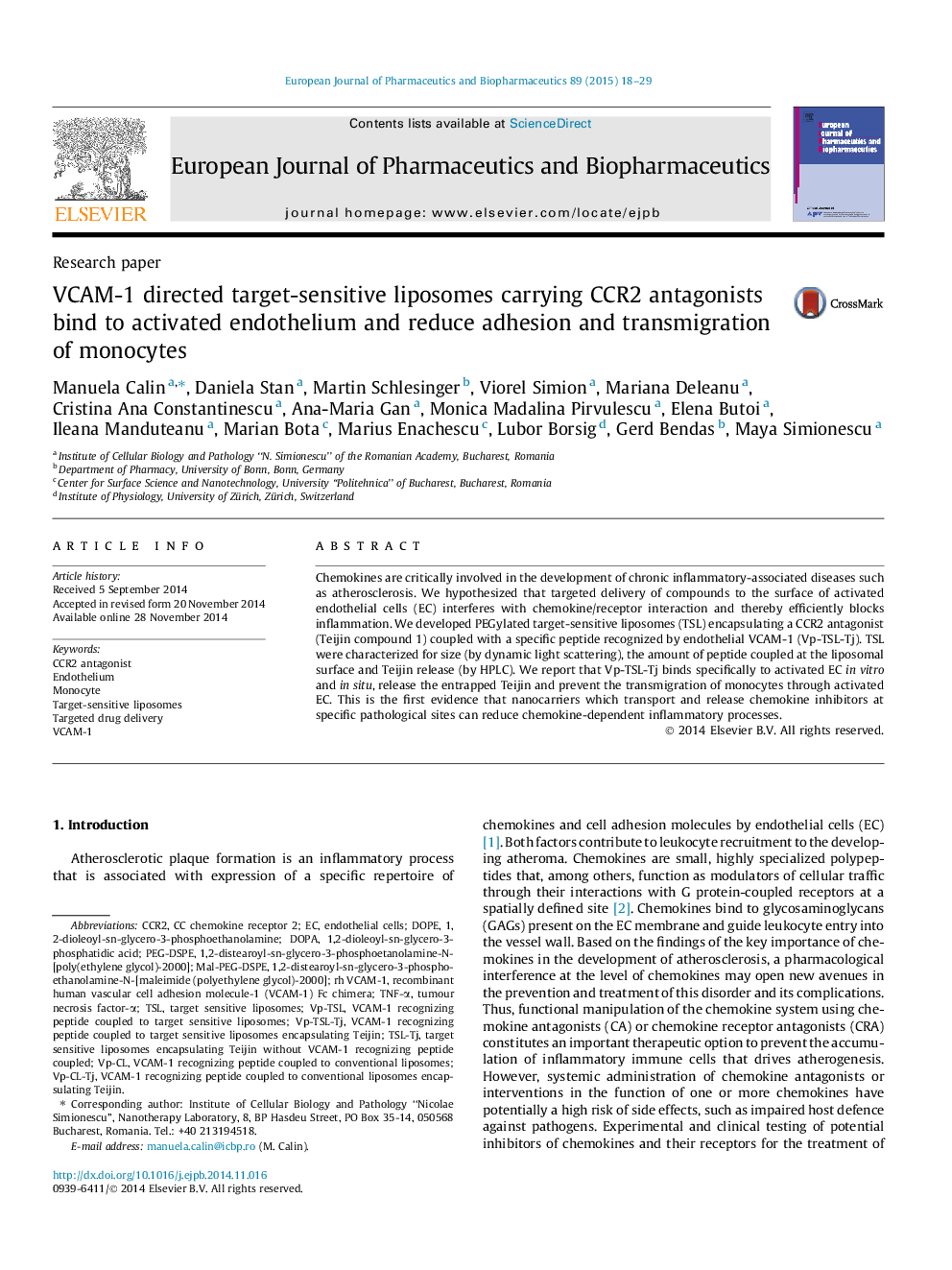| Article ID | Journal | Published Year | Pages | File Type |
|---|---|---|---|---|
| 2083421 | European Journal of Pharmaceutics and Biopharmaceutics | 2015 | 12 Pages |
•We developed VCAM-1 directed target-sensitive liposomes loaded with a CCR2 antagonist.•The liposomes release the entrapped drug after binding to activated endothelial cells.•The developed liposomes target specifically the aorta of ApoE-deficient mice.•The adhesion and transendothelial migration of monocytes are reduced.
Chemokines are critically involved in the development of chronic inflammatory-associated diseases such as atherosclerosis. We hypothesized that targeted delivery of compounds to the surface of activated endothelial cells (EC) interferes with chemokine/receptor interaction and thereby efficiently blocks inflammation. We developed PEGylated target-sensitive liposomes (TSL) encapsulating a CCR2 antagonist (Teijin compound 1) coupled with a specific peptide recognized by endothelial VCAM-1 (Vp-TSL-Tj). TSL were characterized for size (by dynamic light scattering), the amount of peptide coupled at the liposomal surface and Teijin release (by HPLC). We report that Vp-TSL-Tj binds specifically to activated EC in vitro and in situ, release the entrapped Teijin and prevent the transmigration of monocytes through activated EC. This is the first evidence that nanocarriers which transport and release chemokine inhibitors at specific pathological sites can reduce chemokine-dependent inflammatory processes.
Graphical abstractFigure optionsDownload full-size imageDownload high-quality image (162 K)Download as PowerPoint slide
